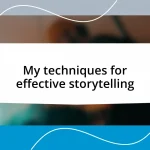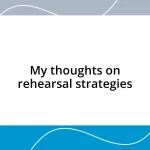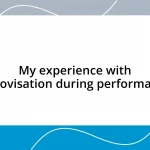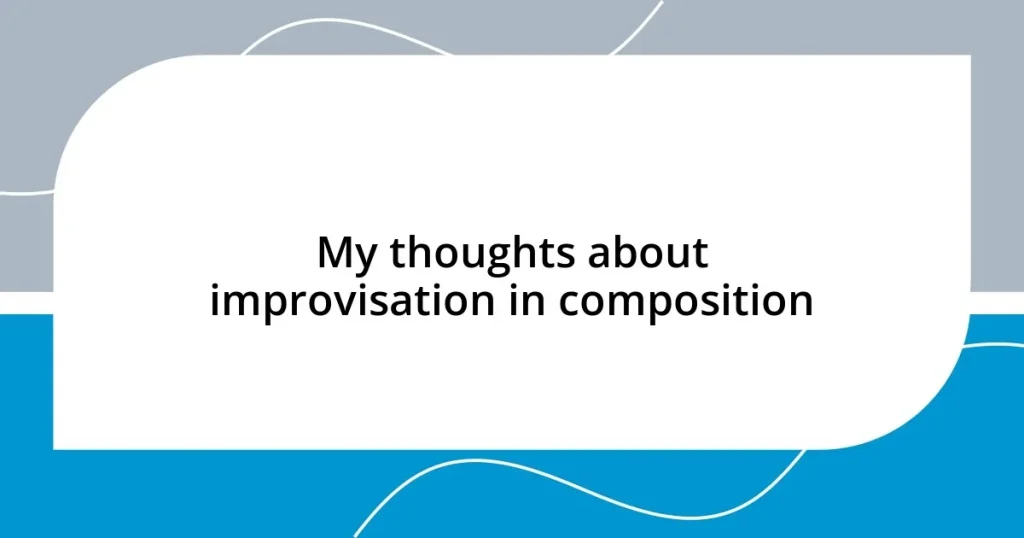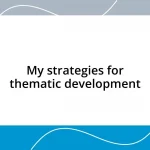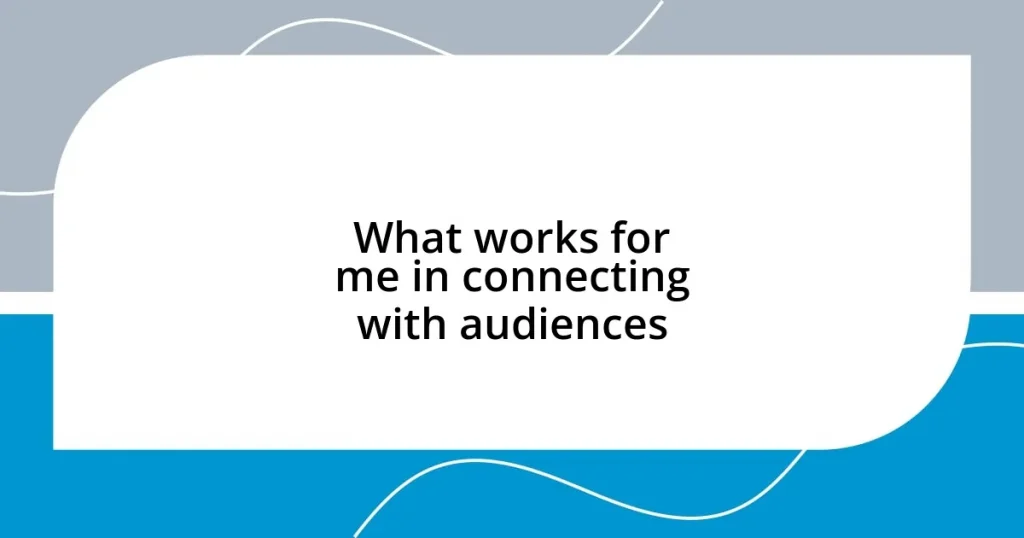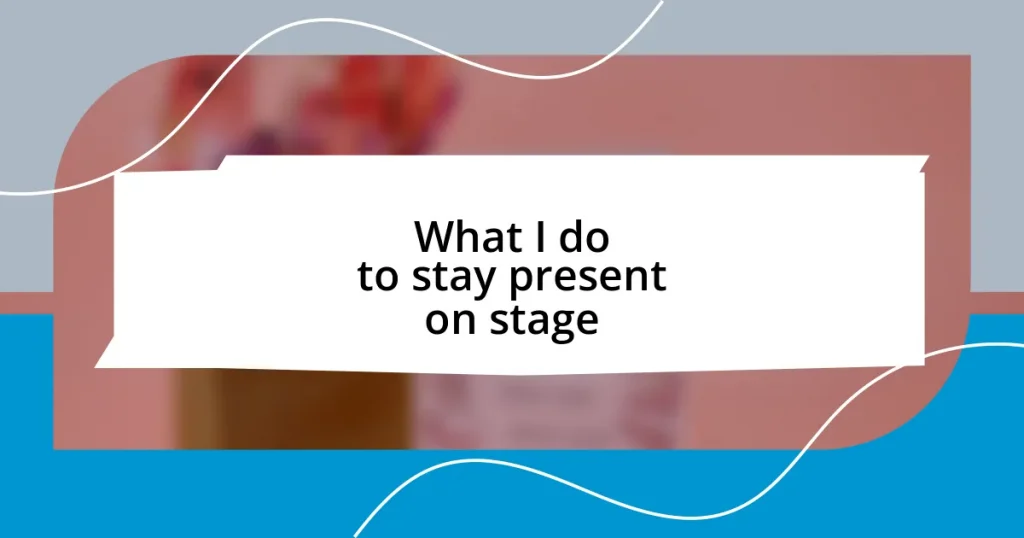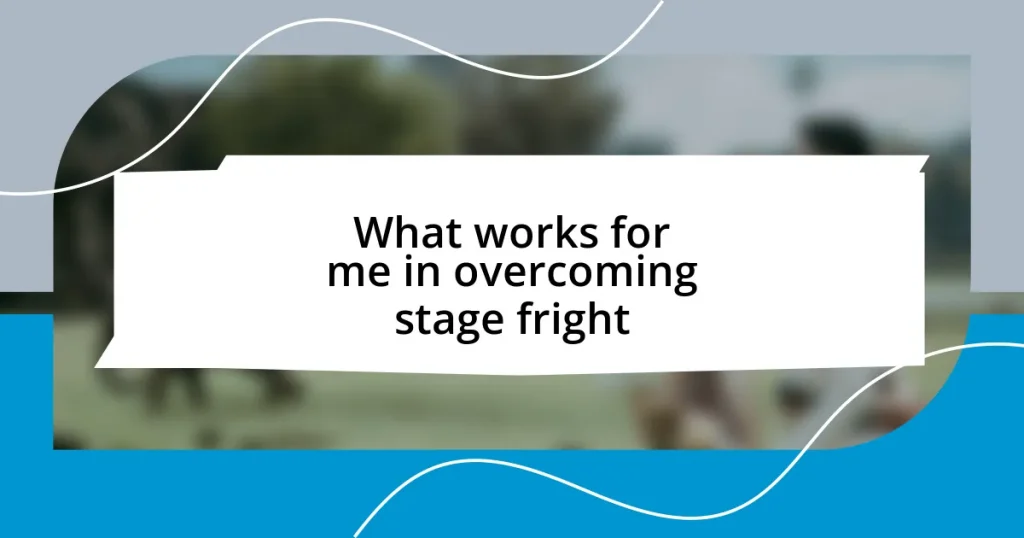Key takeaways:
- Improvisation in music encompasses spontaneity and individual expression, creating a unique collaborative experience.
- Key benefits of improvisation include fostering creativity, enhancing flexibility, promoting collaboration, supporting emotional expression, and building confidence.
- Effective techniques for improvisation involve thematic development, active listening, and exploring diverse scales and modes.
- Common challenges in improvisation include fear of mistakes, difficulty responding in the moment, and falling into predictable patterns.
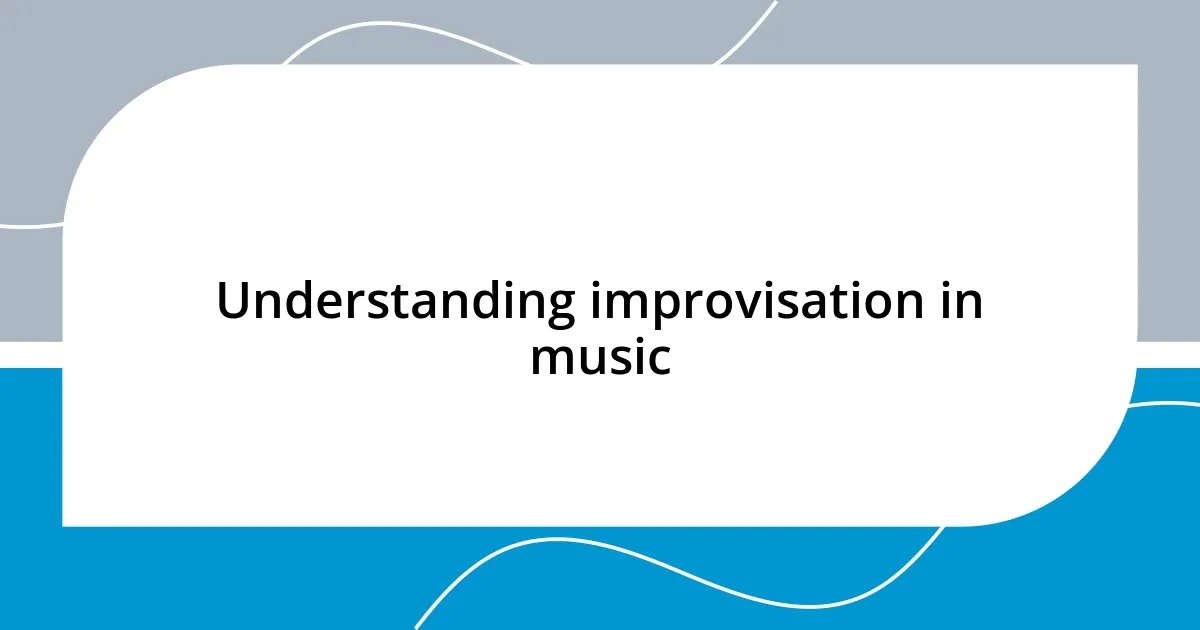
Understanding improvisation in music
Improvisation in music is like a conversation between musicians; it’s spontaneous and fluid, allowing for individual expression within a collective framework. I remember my first jazz jam session, feeling the pulse of the group while navigating a melody I barely knew. That moment taught me that improvisation is not just about technical skills; it’s about trusting your instincts and connecting with others artistically.
When I think of improvisation, I’m reminded of the magic that happens the first time you play without a plan. Have you ever stopped to consider how liberating it feels to let go of structure? For me, each improvised note carried a sense of vulnerability and excitement, transforming my fear into creativity. It’s as if the music flows through you, urging you to express emotions that sometimes words simply can’t convey.
At its core, improvisation invites musicians to be present and responsive, creating a unique sound experience each time. I often find myself tapping into my emotions or life experiences during these moments, which makes every performance deeply personal. Isn’t it fascinating how a single idea can evolve into something entirely unexpected, shaped by the interplay of individual styles and perspectives?
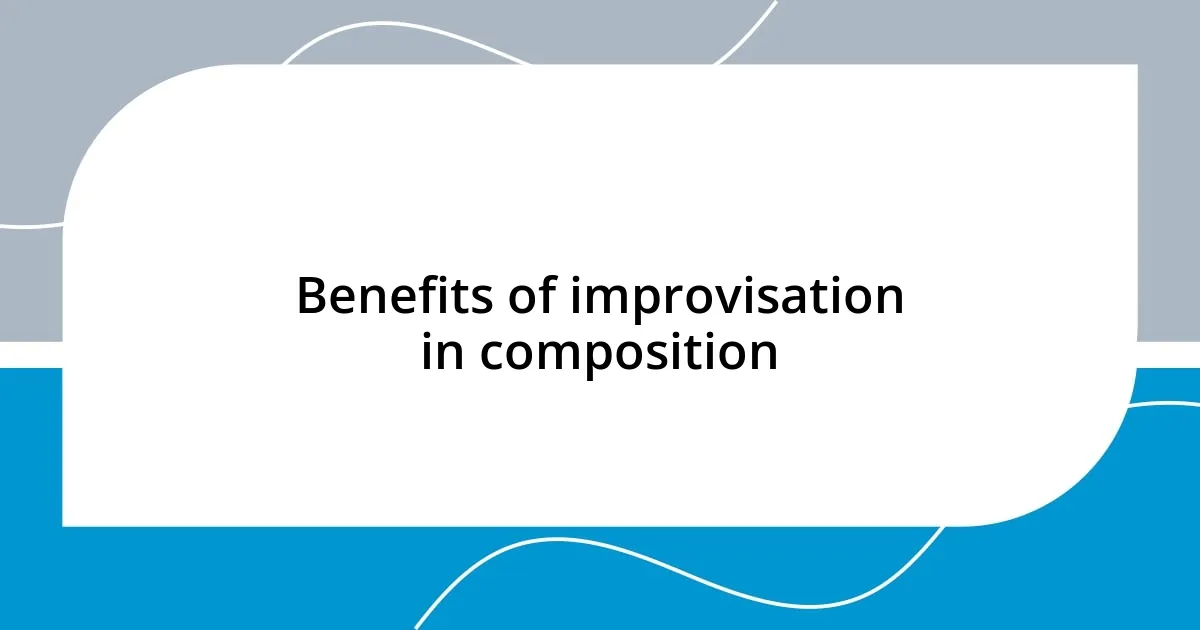
Benefits of improvisation in composition
Improvisation in composition offers a multitude of benefits that enhance both the creative process and the final output. From my experience, the most significant advantage is the freedom it provides; when you improvise, you release yourself from self-imposed constraints. I recall a time when I was stuck on a composition after weeks of meticulous planning. In that moment of frustration, I decided to just play, allowing the music to guide me rather than the sheet. Seconds later, I found myself exploring unexpected melodies that not only revived my piece but also infused it with an authenticity I hadn’t anticipated.
In diving deeper into the benefits, here’s what I’ve discovered:
- Fosters Creativity: Improvisation encourages thinking outside the box, leading to unique and innovative ideas.
- Enhances Flexibility: It trains you to adapt quickly to changing dynamics in music.
- Promotes Collaboration: Improvised sessions can lead to richer interactions with fellow musicians, enriching the overall composition.
- Supports Emotional Expression: It allows for spontaneous expression, capturing emotions in raw, unfiltered moments.
- Builds Confidence: Embracing improvisation trains you to trust your instincts, empowering your overall musicality.
The thrill that comes from such bursts of creativity is exhilarating. Each session filled with improvisation has left me feeling rejuvenated, as if I’ve peeled back layers to discover the core of my musical identity. This spontaneous exploration truly reshapes how I perceive and create music.
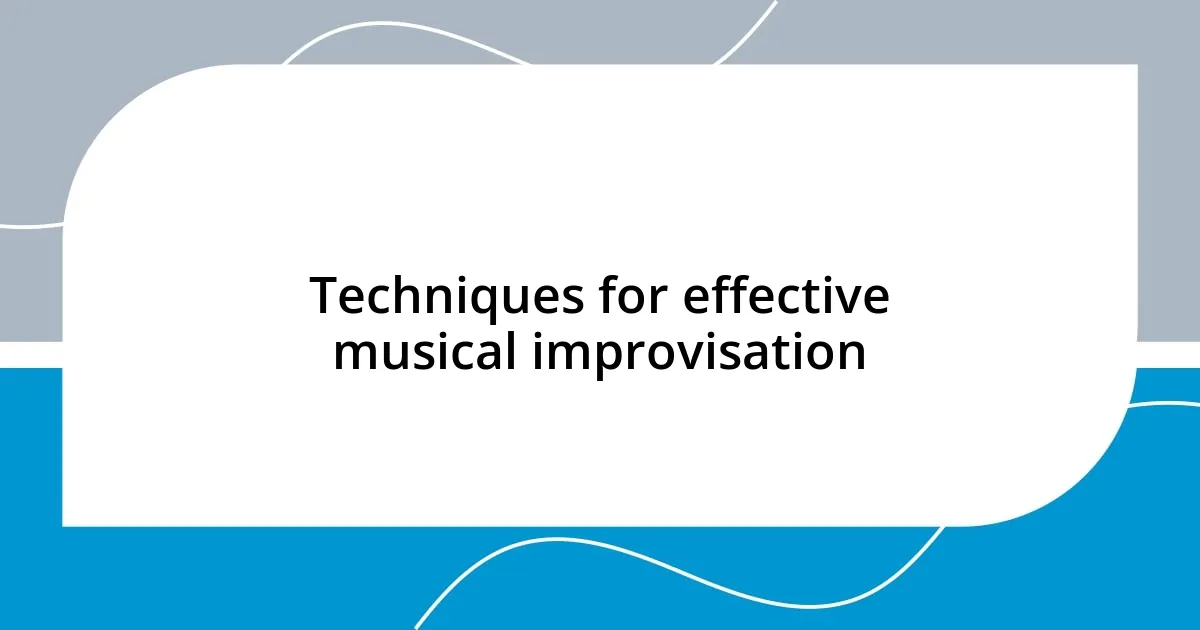
Techniques for effective musical improvisation
One of the most effective techniques for improvisation is to embrace the idea of thematic development. I often think of improvisation as being similar to storytelling; starting with a core theme allows you to build upon it seamlessly. Whether you’re playing a simple riff or a complex melody, I find that revisiting that theme and altering it slightly each time can keep the performance fresh and engaging. It’s like taking your audience on an unexpected journey, and that spontaneity is intoxicating.
Another fascinating approach is to actively listen to your fellow musicians. I remember a jam session where I found myself completely absorbed in the bass player’s groove—it sparked something within me. By responding to their rhythms, I discovered new dimensions to my solos. This interaction is pivotal in improvisation; it creates a musical conversation where ideas can complement and spark creativity in one another. The more present you are, the deeper the improvisational experience becomes.
Incorporating different scales and modes can also elevate your improvisational skills. I still recall the moment I first experimented with the Dorian mode. The unique flavor it added was like stepping into a new sonic landscape, allowing me to express emotions I hadn’t unlocked before. Exploring diverse scales not only broadens your repertoire but also sparks fresh ideas during improvisation, pushing boundaries of what you thought was possible.
| Technique | Description |
|---|---|
| Thematic Development | Building upon a core theme keeps improvisation engaging. |
| Active Listening | Responding to fellow musicians fosters a dynamic conversation. |
| Diverse Scales and Modes | Exploring various scales unlocks new emotional expressions. |
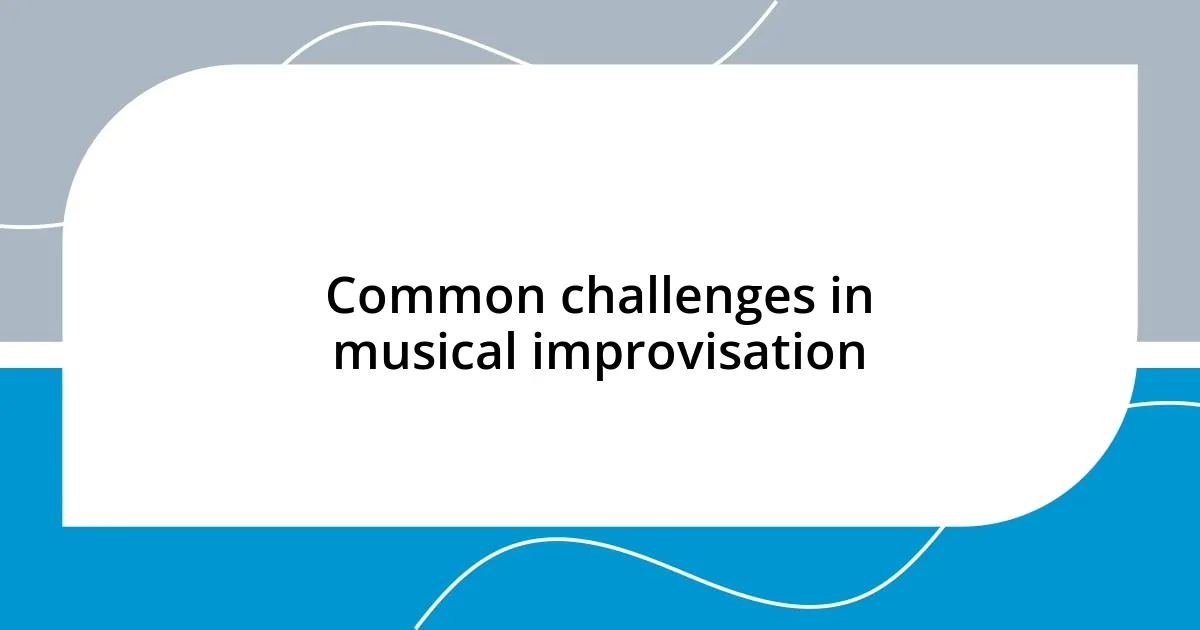
Common challenges in musical improvisation
Navigating the world of musical improvisation can often feel like an exhilarating rollercoaster ride. I recall a gig where I hesitated to fully let go, worried I’d miss a note or lose my place. That moment of apprehension led to a lack of spontaneity, ultimately clouding my creativity. It’s a common challenge; the fear of making mistakes can stifle the very essence of improvisation. How can we shift our mindset to embrace these uncertainties instead of fearing them?
Another hurdle many face is the inability to respond musically in the moment. I’ve struggled with this during a few jam sessions, where I was so caught up in my head that I missed out on the fascinating exchanges happening around me. This can create a disconnect with other musicians, hindering that beautiful synergy that improvisation thrives on. I believe there’s a balance to strike—between preparation and spontaneity—that opens the door to seamless interactions.
A frequently overlooked challenge is the danger of becoming too formulaic when improvising. Sometimes, I catch myself relying on the same licks or phrases. While familiarity can feel comfortable, it can also lead to predictability. I’ve learned to actively seek out new ideas and techniques, even pushing my boundaries by experimenting with rhythms I wouldn’t typically use. Is it in our nature to stick to what we know? Perhaps, but the true magic of improvisation lies just outside our comfort zones, waiting to be discovered.
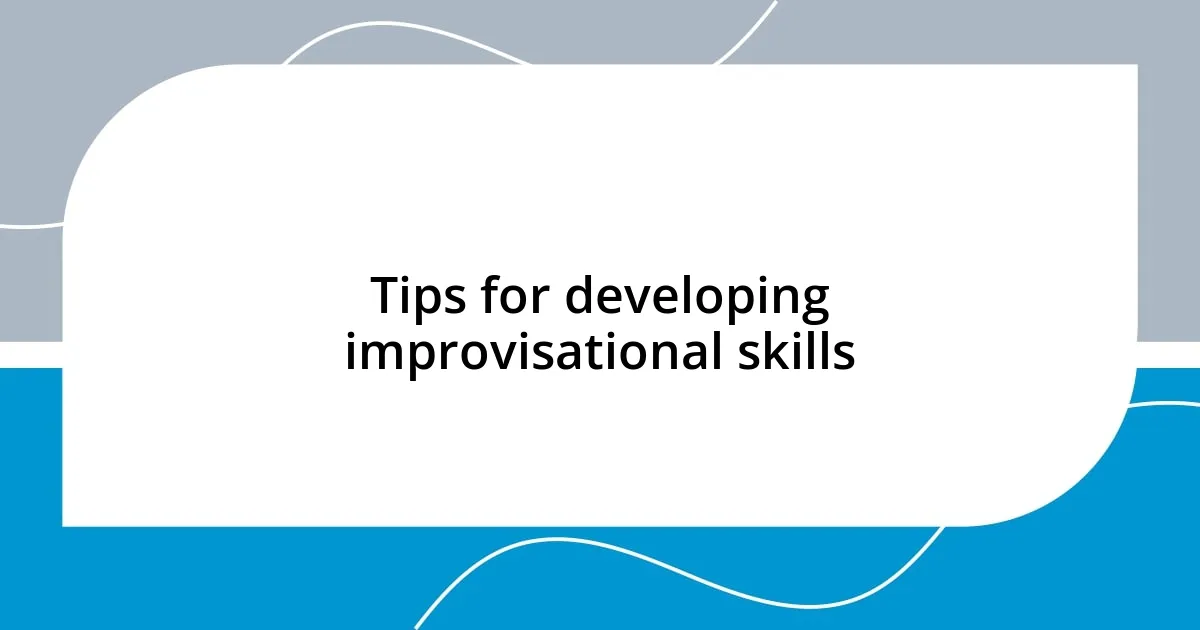
Tips for developing improvisational skills
When it comes to developing improvisational skills, practicing regularly is essential. I remember setting aside dedicated time each week just to play freely without any set structure. This practice not only encouraged my creative flow but also helped me uncover new ideas that I would later incorporate into my more structured compositions. Have you ever noticed how some of your best ideas can emerge when you’re not following a rigid plan?
Additionally, don’t shy away from experimenting with new instruments or sounds. I once picked up a ukulele on a whim, and it completely shifted my perspective on melody and harmony. This fresh approach can invigorate your improvisational skills, prompting you to think differently and break free from your usual habits. I encourage you to explore new textures and see what resonates with you.
Lastly, documenting your improvisations can be incredibly beneficial. I started recording my jam sessions, and listening back revealed patterns and ideas I wasn’t conscious of while playing. This reflection helped me identify strengths and areas for growth. Have you considered how much you could learn by simply reviewing your own work? It’s like having a conversation with your past self, uncovering insights that fuel your growth as an improviser.







